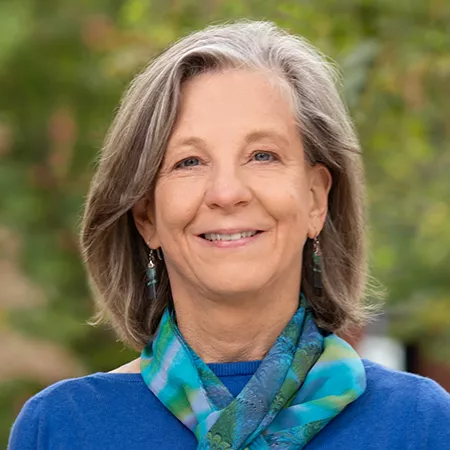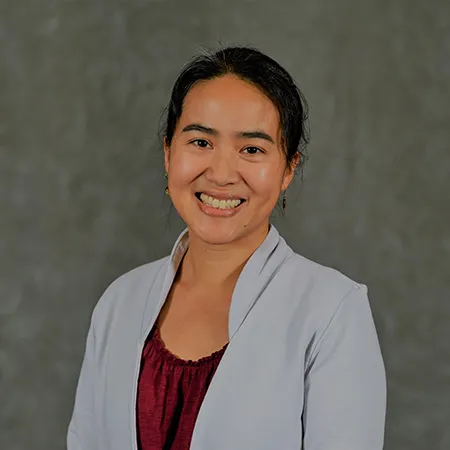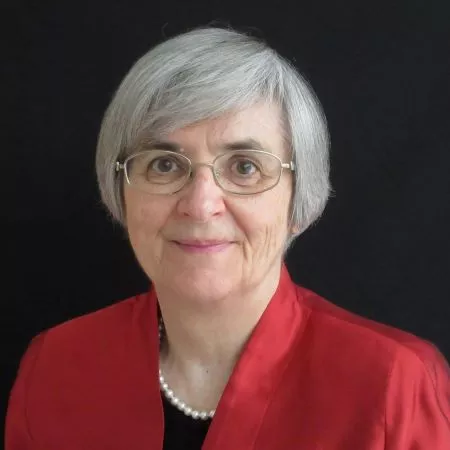This is the second of three short videos meant to be introductory tutorials on why environmental sustainability problems are inherently social problems; how teams can they study them; and what methods researchers use to study them. Part 2 in this series opens by briefly recapping the first video and then moves on to introduce how interdisciplinary teams can synthesize together diverse types of data to study socio-environmental systems. Teams of social and natural scientists work together, sometimes with stakeholders or practitioners, to integrate data, theories, and models to answer questions that will hopefully lead to solutions for difficult problems. This video also presents concepts and approaches used to facilitate socio-environmental team science. The end of the video briefly introduces the third video's topic—the methods that research teams can use; the development of conceptual models; and data gathering, integration and analysis.
-
About the Presenters
Margaret A. Palmer
DirectorDr. Margaret A. Palmer is Director of SESYNC and a Distinguished University Professor at the University of Maryland, College Park. With a background in hydrology and ecology, Margaret contributes to testing and extending fundamental theory and empirical findings on aquatic ecosystem dynamics. She has worked extensively on the relationship between biodiversity and ecosystem processes, the biogeochemistry of streams and wetlands, and organism dispersal in aquatic ecosystems. She is an international expert on the restoration of streams and rivers and co-author of the book Foundations of...
Margaret A. Palmer
DirectorDr. Margaret A. Palmer is Director of SESYNC and a Distinguished University Professor at the University of Maryland, College Park. With a background in hydrology and ecology, Margaret contributes to testing and extending fundamental theory and empirical findings on aquatic ecosystem dynamics. She has worked extensively on the relationship between biodiversity and ecosystem processes, the biogeochemistry of streams and wetlands, and organism dispersal in aquatic ecosystems. She is an international expert on the restoration of streams and rivers and co-author of the book Foundations of Restoration Ecology. Margaret is also known for her work at the interface of water science and policy, having served as a technical advisor and innovator to help build solution-focused teams that solve problems with social, legal, policy and scientific aspects. She is extensively published (Google Scholar), has numerous awards, and remains actively engaged in science matters associated with national and local water policies and actions—particularly those associated with the Appalachians.
External Links:
https://scholar.google.com/citations?user=2nGk3QQAAAAJ&hl=enCynthia Wei
Associate Director of EducationDr. Cynthia Wei was the Associate Director of Education at SESYNC from 2016 to 2018 and previously the Assistant Director of Education and Outreach from 2012 to 2016. In this role, she led and managed educational programs including the SESYNC undergraduate research internship and the postdoctoral fellowship program (co-led), as well as initiatives to broaden participation with underrepresented minorities. She also created and taught an annual short course to advance the teaching of socio-environmental synthesis using the case study approach; this effort resulted in education-focused SESYNC...
Cynthia Wei
Associate Director of EducationDr. Cynthia Wei was the Associate Director of Education at SESYNC from 2016 to 2018 and previously the Assistant Director of Education and Outreach from 2012 to 2016. In this role, she led and managed educational programs including the SESYNC undergraduate research internship and the postdoctoral fellowship program (co-led), as well as initiatives to broaden participation with underrepresented minorities. She also created and taught an annual short course to advance the teaching of socio-environmental synthesis using the case study approach; this effort resulted in education-focused SESYNC workshops, multiple publications and presentations, and a virtual collection of open-access case studies on SESYNC’s website.
These efforts built on Cindy's past experience with national-level science education initiatives as an American Association for the Advancement of Science (AAAS) Science and Technology Policy Fellow at the National Science Foundation’s Division of Undergraduate Education, and as a Christine Mirzayan Fellow at the National Academy of Sciences. Her past scientific research involved animal cognition, having researched behavior and navigation in honeybees during her PhD and social cognition in corvids as a postdoctoral research associate.
Currently, Cindy is an Associate Professor of Teaching and Director of Science Education within the Science, Technology and International Affairs (STIA) program at Georgetown University’s Walsh School of Foreign Service (SFS). There, she leads the Science For All (SFA) program within the SFS and teaches several courses. She also has served as co-editor for the Ecology and Biodiversity section of the journal, Case Studies in the Environment. She holds a PhD in Ecology, Evolutionary Biology and Behavior, and Zoology from Michigan State University, and a BA in Biology (Neurobiology and Behavior) from Cornell University.
External Links:
https://gufaculty360.georgetown.edu/s/contact/0033600001kwDSvAAM/cynthia-wei
https://scholar.google.com/citations?user=_Nfjy9EAAAAJ&hl=en&oi=sraGabriele Bammer
Visiting Scholar in ResidenceDr. Gabriele Bammer is Professor of Integration and Implementation Sciences (i2S) at the Australian National University (ANU) in the National Centre for Epidemiology and Population Health. From 2015-2018, she led the theme of SESYNC research projects, Building Resources for Complex, Action-Oriented Team Science with Jon Kramer. She was also the Principal Investigator of the SESYNC Workshop Interdisciplinary Organizations. This led to the establishment of the Network of Interdisciplinary and Transdisciplinary Research Organisations (NITRO)-Oceania, a network of leaders of interdisciplinary and...
Gabriele Bammer
Visiting Scholar in ResidenceDr. Gabriele Bammer is Professor of Integration and Implementation Sciences (i2S) at the Australian National University (ANU) in the National Centre for Epidemiology and Population Health. From 2015-2018, she led the theme of SESYNC research projects, Building Resources for Complex, Action-Oriented Team Science with Jon Kramer. She was also the Principal Investigator of the SESYNC Workshop Interdisciplinary Organizations. This led to the establishment of the Network of Interdisciplinary and Transdisciplinary Research Organisations (NITRO)-Oceania, a network of leaders of interdisciplinary and transdisciplinary research organizations in the Oceania region. Gabriele’s focus is developing the new discipline of Integration and Implementation Sciences (i2S) to improve research strengths for tackling complex real-world problems through synthesis of disciplinary and stakeholder knowledge, understanding and managing diverse unknowns and providing integrated research support for policy and practice change (see i2s.anu.edu.au and http://i2Insights.org). She looks at applications in population health, environment, and security. She is also an ANU Public Policy Fellow, is an inaugural Fulbright New Century Scholar alumna, and has held visiting appointments at Harvard University’s John F. Kennedy School of Government (2001—2014) and the Institute for Advanced Sustainability Studies in Potsdam, Germany (2019-2020), along with short-term appointments at ETH-Zurich in Switzerland and the Universitaet fuer Bodenkultur in Vienna, Austria.
External Links:
https://researchers.anu.edu.au/researchers/bammer-g
https://i2s.anu.edu.au
https://i2Insights.org
https://www.linkedin.com/pub/gabriele-bammer/63/299/5aa
https://www.youtube.com/user/i2sTalksBenjamin Halpern
Benjamin Halpern


